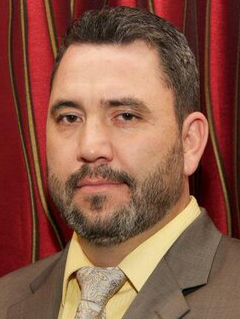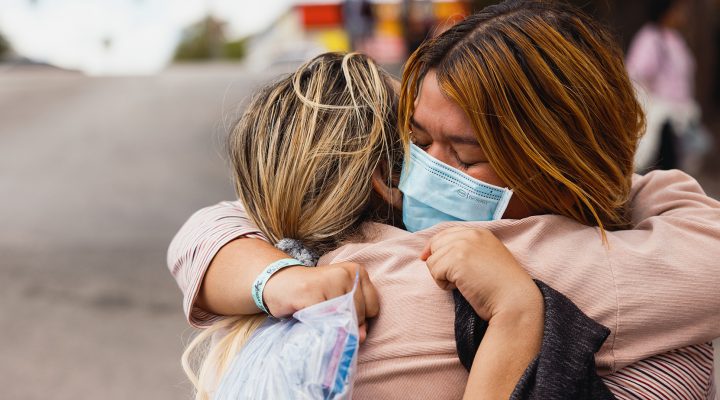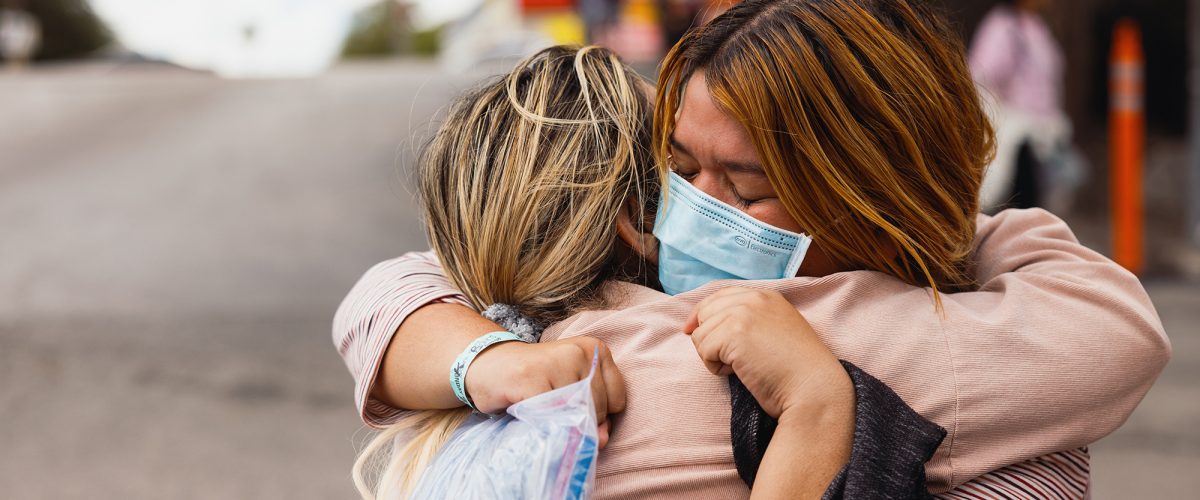Immigration advocates have been especially busy this month actively opposing anti-immigrant legislation proposed on state and federal levels.
That’s because Republican lawmakers from Washington, D.C., to Tallahassee, Fla., have ramped up efforts to energize their base with bills critics have labeled as oppressive, racist and dehumanizing attacks on migrants, asylum seekers and some immigrants already living in the U.S.
In response, national nonprofits, grassroots organizations and religious groups that serve immigrants have gone on the offensive to alert Americans about existing or promised bills they say would, if enacted, destroy families and further damage U.S. and state economies.

Thomas Kennedy
“We are here to discuss what might be the most draconian, extreme legislation at the state or national level in recent American history … and what it means for undocumented immigrants and their family and community members,” Immigration Hub Fellow Thomas Kennedy said during a Southern Poverty Law Center press call held April 26 to discuss Florida bills criminalizing those who provide transportation and other aid to undocumented immigrants.
“We are here to discuss what might be the most draconian, extreme legislation at the state or national level in recent American history.”
Florida House Bill 1617 and Senate Bill 1718 “do nothing to address actual issues and needs and only serve the direct needs of the governor of Florida’s unannounced presidential campaign,” Kennedy said.
The measures, which are now identical in language, also would invalidate the driver’s licenses available to migrants in some states, authorize involuntary collection of DNA samples from undocumented immigrants in hospitals and jails, and impose stiff prison sentences and fines on those who transport undocumented immigrants into or within the state, including school and church bus drivers.
The bills also provide funding to continue efforts to fly immigrants from Texas and other border states to Northern states considered friendly to immigration, as Florida Gov. Ron DeSantis famously did last fall.
SPLC presented a number of immigration experts concerned about the devastating effect the proposals would have on individual and family lives, on businesses and on Florida’s tourism economy.

Renata Bozzetto
“Floridians’ lives are shaped by immigration,” said Renata Bozzetto, deputy director of the Florida Immigrant Coalition. “This proposal will cause incredible harm … for immigrant families, immigrant businesses and businesses who rely on immigrant workers, many of whom are essential workers in the health care industry serving elderly who need home care.”
Supporters of the legislation have said it’s designed to fight illegal immigration at the U.S.-Mexico border but have failed to explain how these bills would accomplish that goal, said Paul R. Chávez, senior supervising attorney for the SPLC Action Fund.
“The bill is just cruelty for cruelty’s sake,” he said. “A state effort to create a separate, competing state-run immigration enforcement system impedes the federal government’s ability to do its job and undermines our democracy. As designed, this bill will push hundreds of thousands of people into the shadows.”

Paul Chavez
And the legislation isn’t altogether clear on the definition of an undocumented immigrant, added Dotie Joseph, a Democratic member of the Florida House of Representatives.
“They don’t even understand who is legal and illegal under federal immigration law,” she said, adding the bills would promote racial profiling by law enforcement.
The true function of the legislation is to support DeSantis’ anticipated run for the presidency, said Benjamin Feliciano, pastor of Rosa de Sarón Church in Fort Myers.
“This bill is more of a political show pony than an example of effective public policy that would keep our community safe and flourishing. This bill would restrict our ability to follow the tenets of our faith through the call to help others. This bill would literally tear at the fabric of our community, much of which has been rebuilt through neighbors, immigrants and U.S. citizens working side by side.”
On the national level, supporters of compassionate immigration reform sounded the alarm on the Border Reinforcement Act of 2023, which was introduced by Republicans in the U.S. House Homeland Security Committee April 24, and about the Border Security and Enforcement Act of 2023, which originated in the House Judiciary Committee on April 19.
The former measure calls for increasing the Border Patrol force to 22,000, resuming construction of Donald Trump’s border wall in 200-mile annual increments, modernizing border security technology and ending federal funding for non-governmental organizations and other nonprofits that help migrants who have entered the U.S. illegally. The latter bill would make it harder for migrants to make cases for asylum and provide authorities more power to detain and deport asylum seekers.
“This bill would undermine humanitarian protections at the border.”

Jennie Murray
The Judiciary Committee legislation will also “undermine humanitarian protections at the border, nullify longstanding trafficking protections for unaccompanied children, and constrain our nation’s ability to respond to urgent humanitarian and national security events such as the Afghanistan evacuation and the war in Ukraine,” Jennie Murray, president of the National Immigration Forum, said in comments posted online.
The forum noted the House action preceded the anticipated end of Title 42, a Trump-era policy used to bypass immigration courts to return asylum seekers and other migrants to Mexico.
“Enforcement alone will not make our border more secure or orderly,” Murray said. “Congress must provide alternative pathways for people seeking to come to the U.S. legally and maintain America’s longstanding commitment to humanitarian protection.”
Members of the Evangelical Immigration Table sent a letter to members of Congress April 19 imploring them to pursue legislation that protects both the nation’s borders and asylum seekers and vulnerable migrant children.
“That does not mean that everyone who reaches the U.S. border should be allowed in, but it does mean that we ensure due process for those seeking asylum under the terms of U.S. law. We ask you to oppose any legislation that in any way undermines due process for asylum seekers,” the letter states.
“We also affirm that our government should take extra caution to ensure the well-being of those who are uniquely vulnerable. … Recent reports of unaccompanied children being mistreated even within the United States are upsetting and underscore the need for better safeguards for those in the care of relatives or other sponsors within the United States,” it adds. “We advocate thorough processes to ensure the safety of vulnerable children, rather than sending them back to situations of likely danger abroad.”
Related articles:
Immigration advocates slam Biden’s asylum plan by comparing it to Trump’s
On the path to immigration justice, it’s time for Biden to change course | Opinion by Salote Soqo


